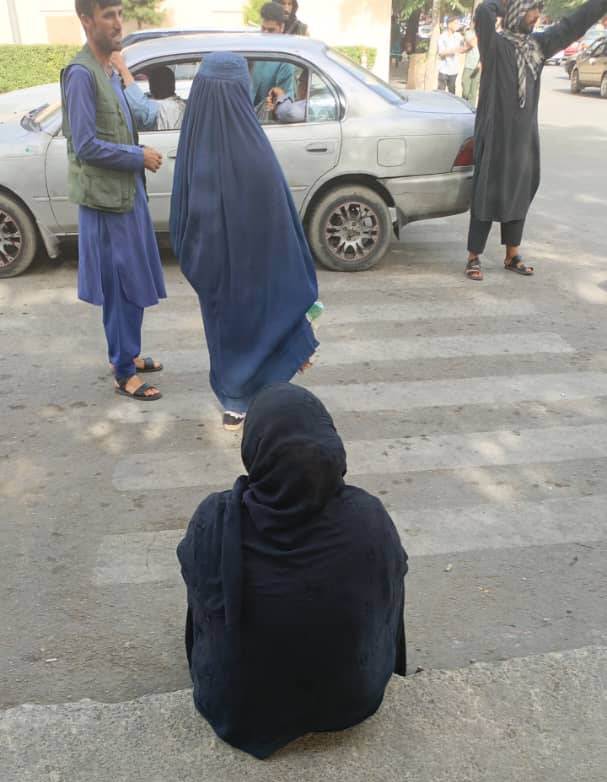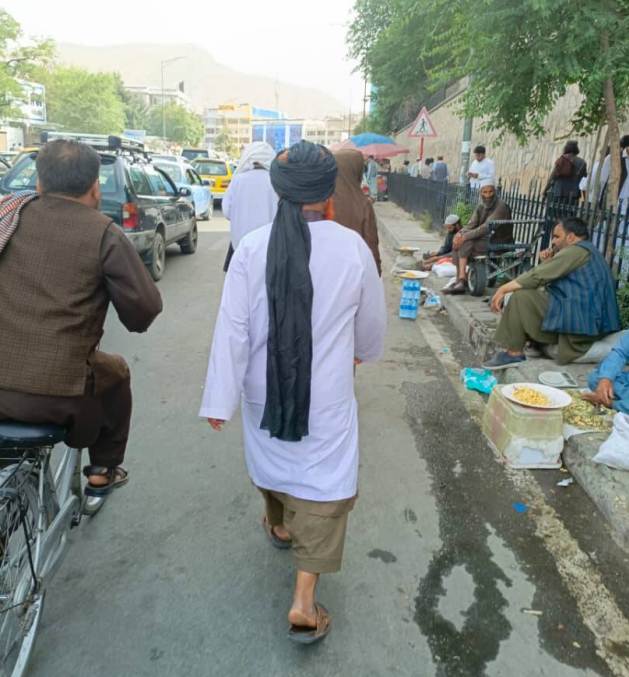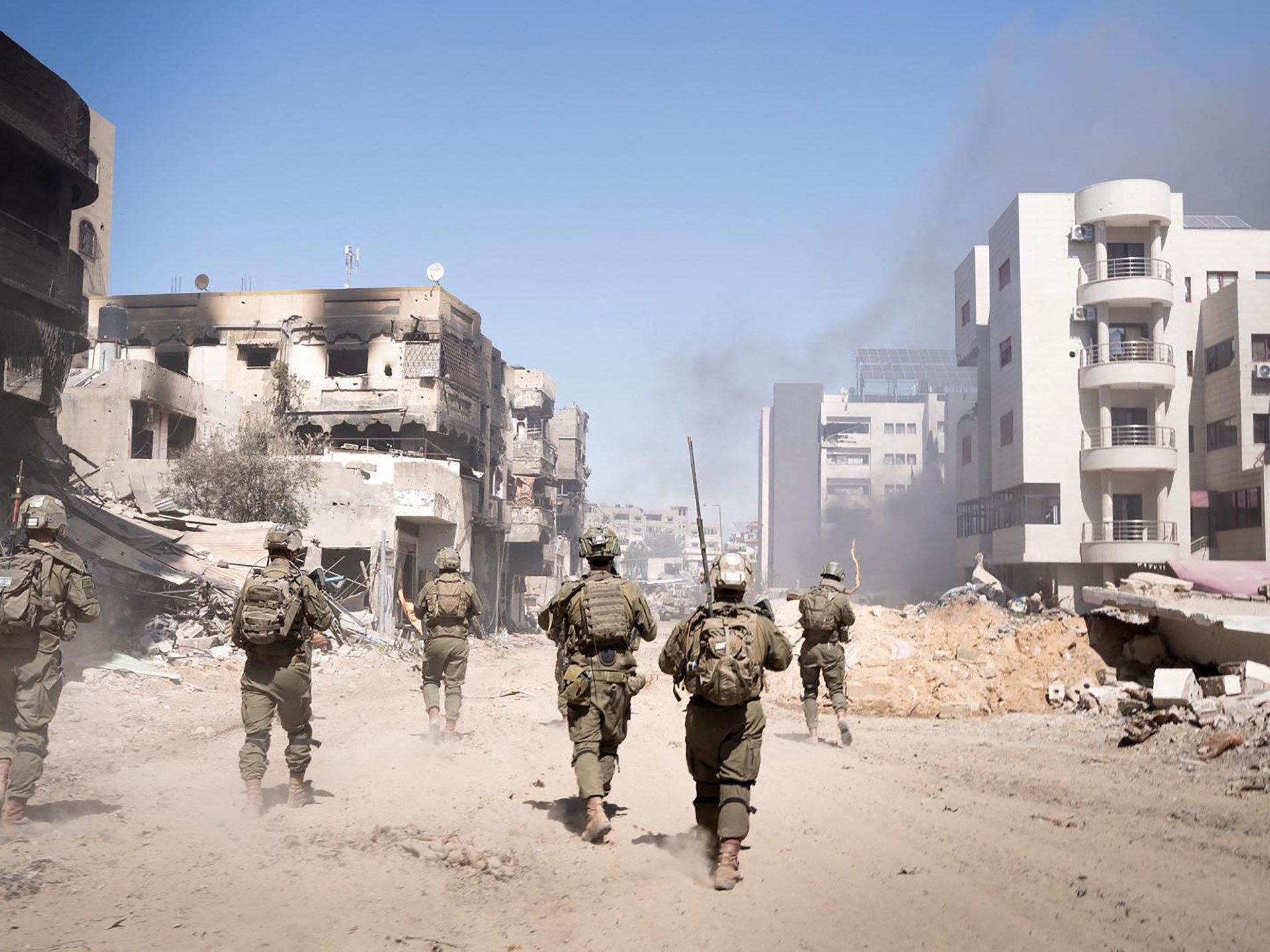The Ongoing Struggle in Afghanistan — Global Issues
Oct 12 (IPS) – The author is an Afghanistan-based female journalist, trained with Finnish support before the Taliban take-over. Her identity is withheld for security reasonsAfghanistan can be likened to an open prison, where nearly 20 million women struggle daily for their freedom. What these women demand is a simple right – the right to lead dignified lives, equal to their male counterparts. Unfortunately, this aspiration seems distant and despairingly unattainable.
Ever since the Taliban swept back to power in Afghanistan two years ago, the treatment meted out to women is a reflection of how they are viewed in society: “imperfect mind, incompetent, weak, and should be under the control and administration of a man”, says Abdul Hakim Haqqani, the head of the Supreme Court.
In his new book, titled, “Islamic Emirate and the System”, published by the Taliban, Haqqani considers women as mainly meant to produce children for the continuity of generations.
Education, work outside the home, and social and cultural activities of women, which are considered their basic rights, have been declared blasphemous and contrary to the divine system that they themselves believe in.
However, in the divine system that we Muslims are familiar with, studying is mandatory for both men and women.
Under the Taliban’s rule, women are banned from attending school and university; are not allowed to sit around in parks; women’s gyms are shuttered. Even the sound of music is prohibited at wedding ceremonies.
Women are also denied access to justice in Taliban courts for crimes like theft and rape unless filed through a male guardian. Those who dare to protest their fundamental rights face arrest, forced confessions under brutal torture, and, if their crime is considered serious, as judged by the Taliban, they are stoned or shot in public.
A few examples follow as testimony to the Taliban’s violent and heinous acts against women.
Last a year, a district court in Badakhshan province sentenced a woman and a man to be stoned to death. Their crime was their desire to live together.
Celebrating Mother’s Day is declared a crime by the Taliban, and a group of women paid dearly in May this year. A trip to the shop in Kabul to buy cakes for the celebration ended them being thrown into the back of Ranger car by armed men.
They were driven to an unknown place and not heard of since. Eyewitnesses said no one could approach to help the women by asking why they were arrested. Their loved ones are anxiously waiting for their return.
Zainab Abdul Hai, another young girl was shot dead by the Taliban at a checkpoint while returning from a wedding party. The reason, according to the Taliban, was not wearing a full hijab.
I myself also fell victim to the enforced restrictions put in place by the Taliban. Although I was fully covered in a hijab, I was interrogated for 20 minutes by an armed group at a checkpoint in Shah Do Shamshire just because a few strands of hair could be seen under my hijab.
As I was crossing the road after my release, the stare of accusation and mocking laughter felt like a sword sunk deep into my soul.

Twenty-nine-year-old Ruqiyeh Sai was among a group of women protesting for their right to work and for their daughters to go to school. In the space of three months in 2022 and 2023, she was arrested twice by the Taliban and tortured in a dreaded torture centre.
Ruqiyeh, told Nimrokh magazine in an interview: “One of them punched me, the other kicked me, and another one hit me with a water pipe. “They cursed me”, ‘to which country did you sell yourself, you prostitute? For whom do you spy?’ “I passed out under their torture,” she said.
Ruqiyeh Sai was released from prison with a guarantee from the elders and a promise to the Taliban not to protest anymore. Nevertheless, she was video-recorded and threatened to be stoned to death if she raised her voice again.
“I was very confused, and I am still confused to the extent that sometimes I think of suicide, but when I see my children, I abandon the thought”, she said. Ruqiyeh has since fled to Pakistan with her children.
Suicide among Afghan women has increased since the Taliban returned to power, according to a UN Report. It is mainly due to depression stemming from the severe crackdown on women and girls’ human rights, especially since many have been forced to abandon their education.
However, women and girls’ suicide is not widely reported due to the Taliban’s clamp down on the press.
Women’s voices are also silenced over the radio. In their latest decree the Taliban have ordered that if a woman’s voice is heard over the radio – whether as a presenter or even in commercials – the owner of that radio station would be punished.
In essence, the Taliban today mirrors the oppressive regime of two decades ago, perpetuating the suffering of Afghan women.
© Inter Press Service (2023) — All Rights ReservedOriginal source: Inter Press Service
Check out our Latest News and Follow us at Facebook
Original Source







